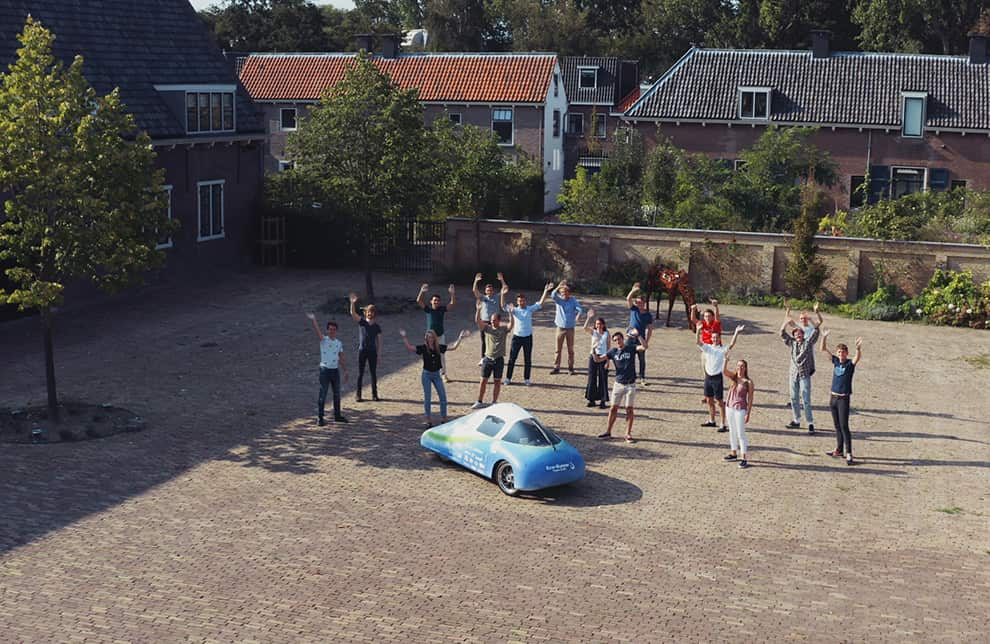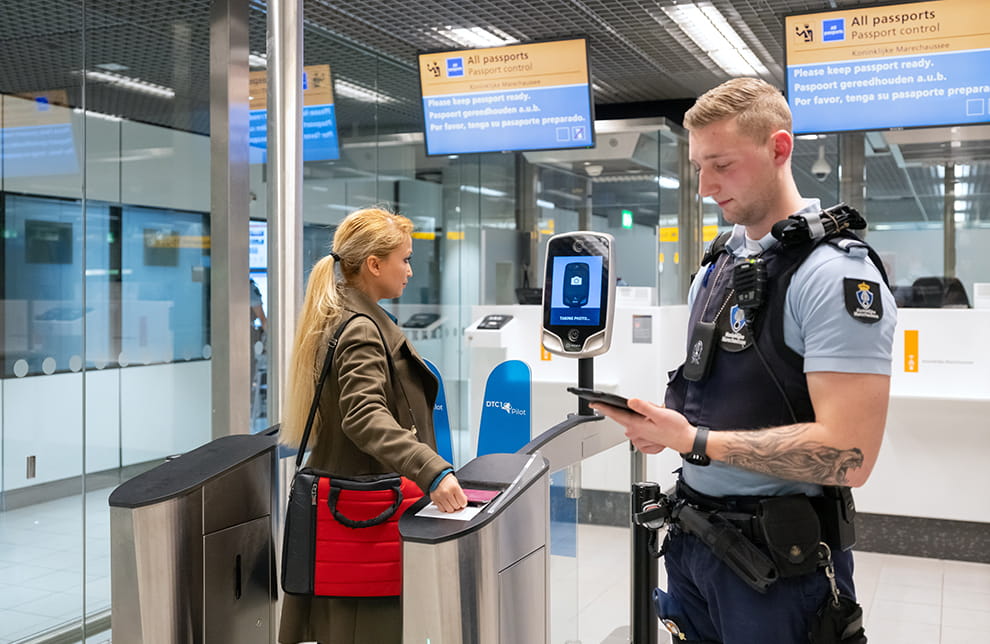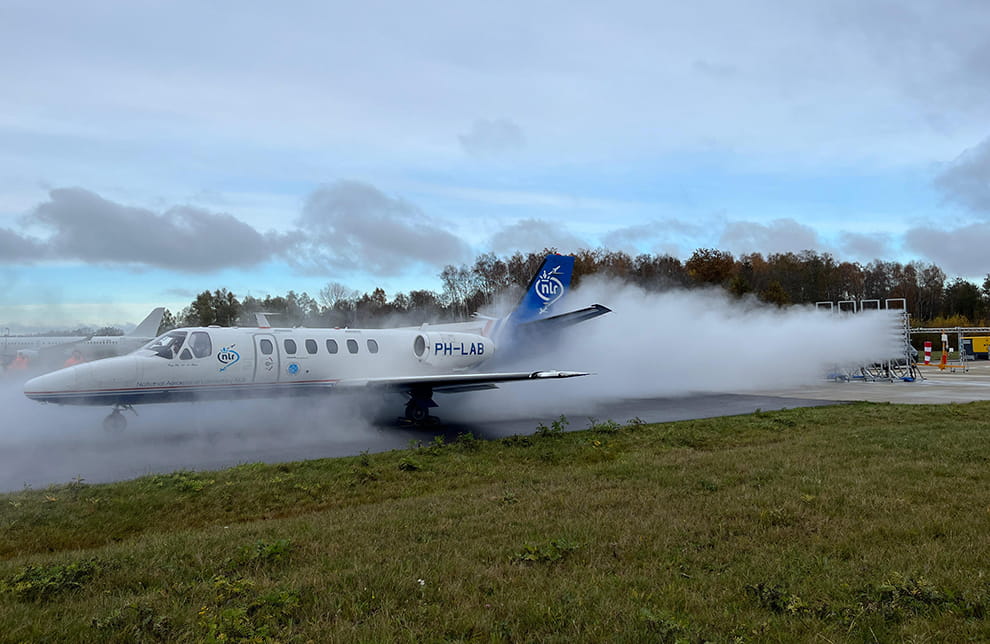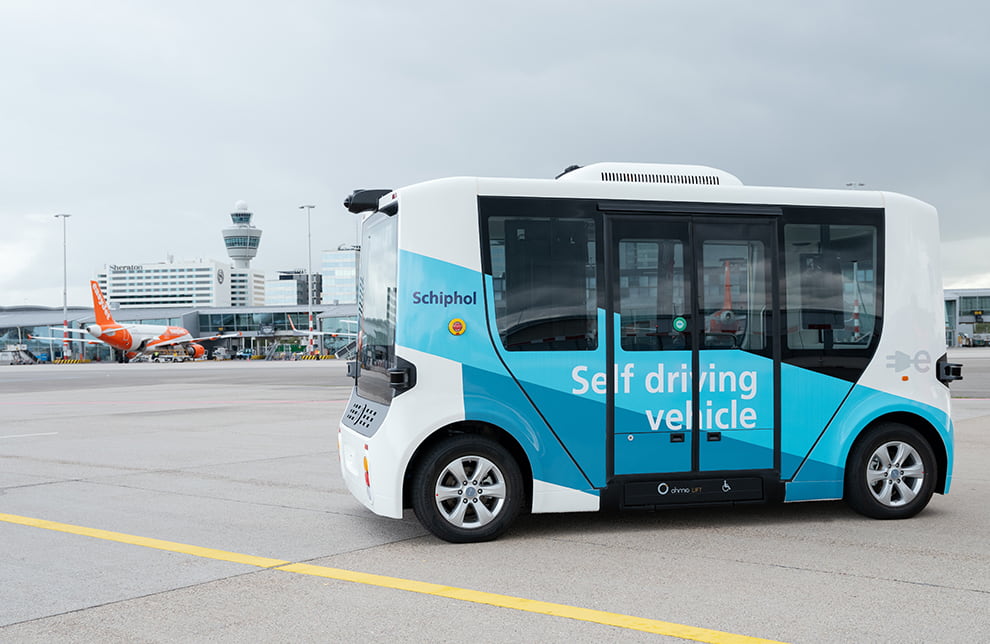Richting duurzaam grondverkeer met Eco-Runner Team Delft: Collaboration with Eco-Runner Team Delft
Schiphol Group proudly announces our new collaboration with Eco-Runner Team Delft. The team of students from Delft University of Technology aims to design and build the world’s most efficient hydrogen-powered city car. Since 2005, they’ve participated in the Shell Eco-marathon to show off their progress. The goal: using as little hydrogen as possible to travel ever further. In this way, Eco-Runner hopes to promote a sustainable future and emphasise the importance of hydrogen as part of the energy transition we all face. For Schiphol, the collaboration underlines the dedication we have towards sustainable mobility and fits our ambition to create the world’s most sustainable airports.

This year, the team – who’ve known a long and successful history – comprises of 23 enthusiasts pursuing a diverse range of technical degrees. Since last year, Eco-Runner Team Delft participates in the Urban Concept class of the Shell Eco-marathon, which requires competitors to design and build a hydrogen car that matches a modern city car in looks and technical specifications. This way, they aim to contribute to sustainable (urban) mobility in a practical sense.
The Eco-Runner XI, this year’s car, has almost been fully constructed. Compared to its predecessor, this new city car generates 40% less drag and weighs 30% less. This reduction in weight was achieved despite the addition of a cruise control system to increase driving efficiency. Sadly, the 2021 Shell Eco-marathon was cancelled, but the vehicle will be put to the test in a number of alternate events.
The Innovation Hub celebrates our collaboration with the team. We find the students’ inventiveness to be contagious and plan to make us of this and their knowledge on hydrogen within our own company. To this end, we plan to jointly come to new insights and creative solutions to a number of challenges we currently face, such as the improvement of our ground operations. All to achieve our self-imposed goal of an emissions-free ground operation by 2030, on our way to fully autonomous operations by 2050.
Read the previous blogs
-
Tap and go with your Digital Travel Credential!
Published on:Can you board and cross the border faster with a digital travel document? At the request of the EU, we are testing a DTC together with the government and KLM.

-
Test capturing ultrafine particles with droplets
Published on:We are working diligently to reduce the amount of ultrafine particles. A possibility is the use of water droplets to remove ultrafine particles from the air.

-
Autonomous Bus Initiative
Published on:Our ambition: operating the world's most sustainable and top-tier airports by 2050. With this in mind we're putting autonomous buses to the test on airside.
